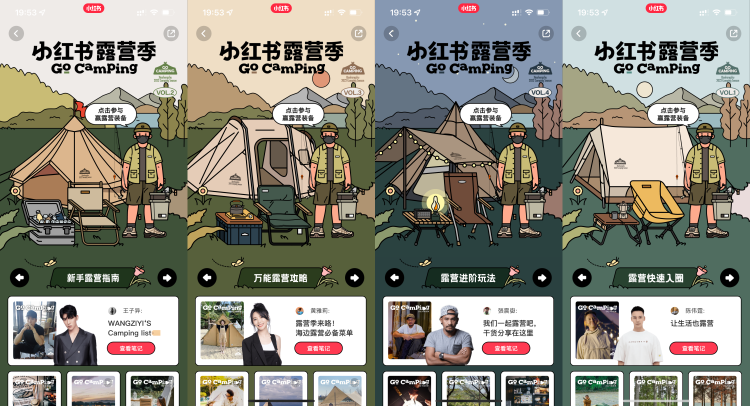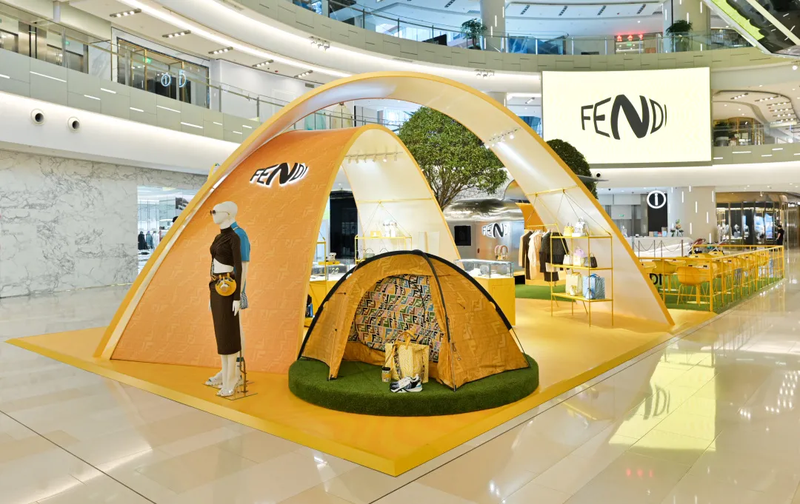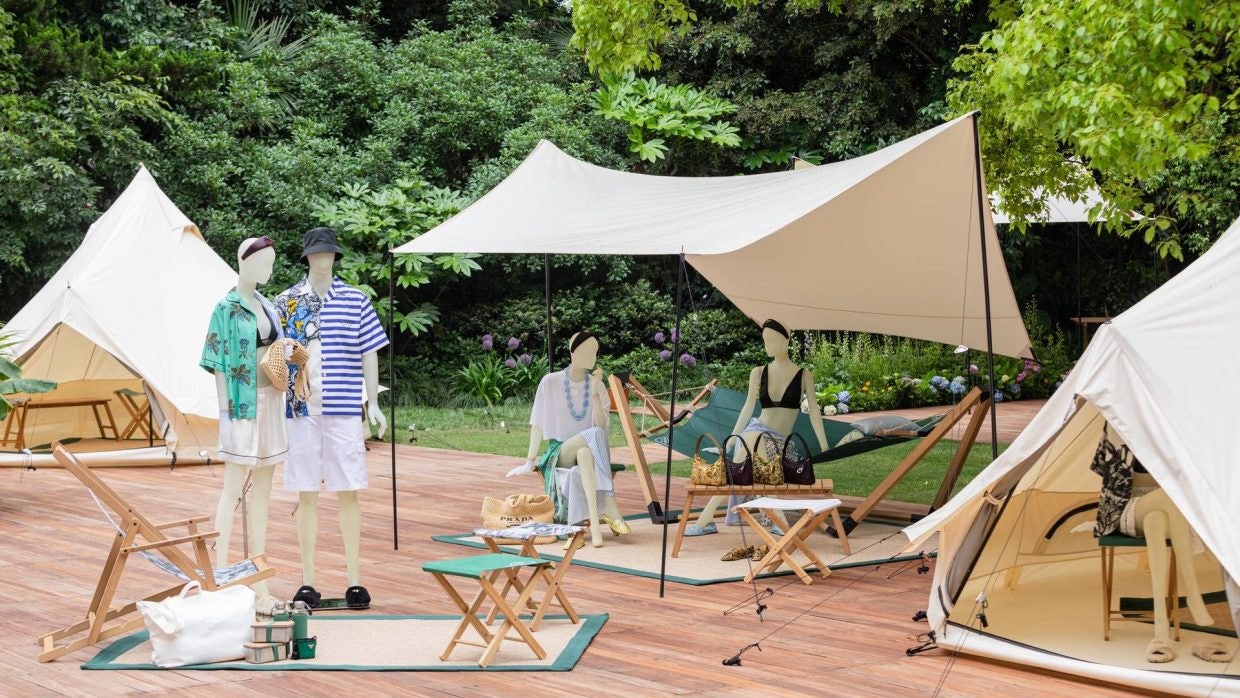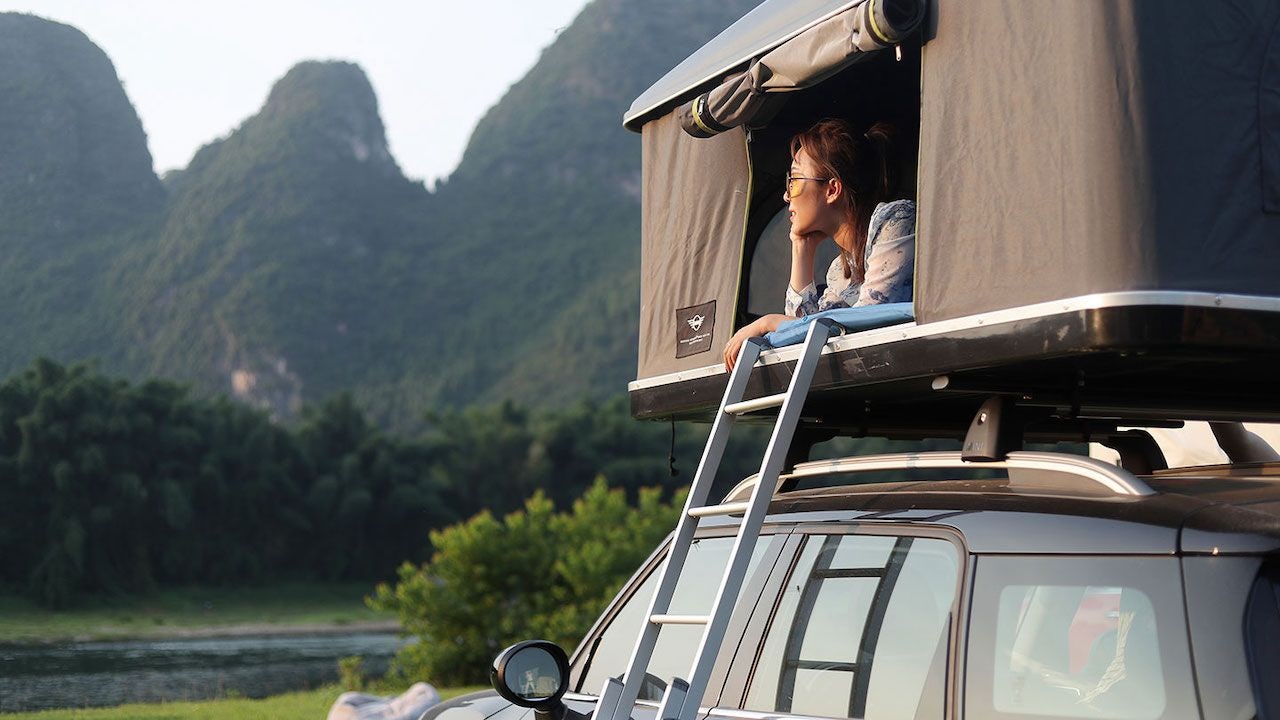Unsurprisingly, domestic tourism suffered yet another setback from China’s recent Covid-19 flare-ups. Trips taken during the five-day Labor Day holiday in May fell to 160 million, dropping by 30.2 percent year-on-year, according to the Ministry of Culture and Tourism. Even provinces and regions free from April’s lockdowns faced limited travel options, with long-distance trips restricted unless necessary.
This is where camping came into the picture. For those on WeChat during the Labor Day period, it seemed as if friends were either taking COVID-19 tests or camping outdoors. Searches for “camping” on travel platform Ctrip on the first day of the Labor Day Holiday hit an all-time high, surging 90 percent compared with the week before. Similarly, ticketing site LY.com said searches for “camping” were up by 117 percent.
Two years have passed since 2020’s “Year of Camping” but tents and glamping are still trending. Is it too late for brands to enter the space? Jing Daily finds out.
Camping’s mainstream moment#
The outbreak of Covid-19 in 2020 kicked off China’s camping craze. With international travel largely impossible and domestic travel hampered, holidays hung in the balance. Camping, satisfying social distancing rules and desires to be in nature, stood out as a perfect solution.
As camping went somewhat mainstream, it became a top lifestyle activity, and posting pictures of camping became a social media trend. In 2021, camping-related posts on Xiaohongshu increased fivefold year-on-year. Young urbanites used camping to meet new people. According to the 2021 report, “Gen Z and Camping Community,” co-released by Taobao and Soul, 78 percent of the post-95 respondents agreed that camping was likely to forge lasting relationships. It’s also pet friendly, sitting comfortably alongside China’s booming pet industry.

Camping suits Gen Z’s desire for a balanced life, said Xiana Chin, Senior Marketing Manager of ChatLabs: “In the era of information [overload], camping is an escape from the hustle and bustle of everyday life and helps you find yourself in relaxation and calmness, so-called ‘back to mundane life.'”
With the average camper in China spending 1,038 (6,995.3 RMB) on glamping in 2021, the camping economy has spawned diverse business models, allowing for integration with hot sectors such as coffee, cinema, barbecue, and LARP (a role-playing game). According to Tianyancha, a platform that tracks business registrations, there are 56,000 camping-related enterprises in China as of May, and nearly 70 percent of them were founded after 2020.
How far will camping go?#
There’s no doubt that camping has provided China’s recently stagnant tourism industry with a silver lining. China's largest online travel agency Ctrip took the lead in promoting camping-related trips and launching its camping-themed recommendations, covering 120 cities in 28 provinces across the country, according to Tech.China.com.
Hard-hit hotels have also tapped into the trend in an attempt to offset their pandemic losses. Last year, luxury hotels like Le Méridien and Shangri La, provided a camping experience for travelers that featured the same sea view as in their hotel rooms — at a relatively low price. This proved attractive to tourists in cities like Sanya, Hainan.
But perhaps the top beneficiaries are outdoor brands, and cost-effective players especially. Since camping went mainstream, the market and the customer base for outdoor clothing and equipment has grown in quantity and diversity, and high-end brands are not the first choices for most. Should they enter the space, they need to focus on the social nature of camping activities and lean into personalisation. “Outdoor brands need to bring out both functional and stylish gears to embrace the rising trend of glamping,” said Chin.
Some brands are already doing this: In 2019, Louis Vuitton’s 2054 men’s collection took inspiration from the outdoors; its Monogram backpack trunks could transform into functional camping tents. Last May, Prada’s Outdoor collection fused gardening, coffee, and glamping scenarios to show off the label’s new offering. Last June, Fendi set up an indoor campsite highlighted by a yellow tent stamped with its iconic FF logo at Shanghai’s IAPM Mall.

And more is on its way. This month, Bosideng, the largest down-clothing brand in China, collaborated with Anakiki, a Chinese independent fashion brand. The result is a collection of outdoor camping gear. But is it too late for new players to enter China’s camping market?
Shanghai’s recovery from its months of lockdown could take the camping trend to a whole new level. “In my opinion, the camping trend will not only continue but flourish,” said Xiana Chin, who stayed home for two months in Shanghai and incessantly looked forward to traveling outdoors. Chin added that camping not only makes up for the unavailability of global travel, but helps to make up for months of lost social interactions.
Before the lockdown carpeted Shanghai, Xuhui Riverside Park was a well-known spot for camping, where tents were so crowded every weekend that it looked like a wild campsite. The truth is Shanghai urbanites could never say no to camping, and there are over 1,000 posts on Xiaohongshu about this spot. Although it's niche, the platform is a barometer of taste. Back to the question: is it too late for new players to enter the camping market in China? Let them stake a claim and find out.

